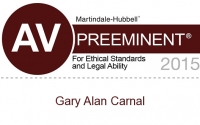Tag Archives: St. Petersburg Estate Planning Attorneys

How Does Owning a Second Home Outside Florida Affect My Estate Plan?
Many people relocate to Florida from other states. They may continue to own property in one state while owning a second home in Florida, or vice versa. This can pose challenges when it comes to estate planning, since multiple states can mean multiple probates. Understanding How Probate Works Probate is the process of administering… Read More »
Understanding How Revocable Living Trusts Work
A revocable living trust is a useful estate planning tool that allows you to keep control of your assets during your lifetime–and avoid probate after you die. In a living trust you transfer your assets to a trustee, but you can serve as your own trustee. If you do choose to name someone else… Read More »
Understanding Special Needs Trusts
There are some estate planning situations where it is not advisable to simply leave a family member or other loved one a large inheritance. For example, if that person is receiving certain government benefits, such as Medicaid, suddenly receiving even a small amount of cash might jeopardize their eligibility. To avoid such a scenario,… Read More »
Can an Illegitimate Child Inherit From My Estate?
Although Florida law establishes an order of inheritance for “intestate” estates—the legal term when someone dies without a will—that does not mean you should avoid estate planning altogether. Indeed, dying without leaving a last will and testament can lead to some complicated legal questions for your family and the courts. A will allows you… Read More »
What Does It Mean to Die Without a Will in Florida?
Many Florida residents choose not to make a last will and testament. So what happens when a person dies without a will? Florida state law steps in to fill the void through a process known as “intestate succession.” How Intestate Succession Provides for Spouses & Children Florida’s intestate succession law specifies how to distribute… Read More »
Your Most Recent Will May Not Be Your “Last” Will
A last will and testament is an estate planning document specifying who you wish to receive your property upon your death. If you die intestate—that is, without leaving a will—your property will pass to your next-of-kin in accordance with Florida law. Your property may also pass intestate if your will is found invalid by… Read More »
How Should I Revoke a Will or Trust?
A will or trust is not set in stone, at least as long as you are alive. As your Florida estate planning needs change throughout your lifetime, you may wish to revise or revoke prior estate planning documents. It is important to make your intentions to revoke a will or trust as clear as… Read More »
Should You Create a Revocable Living Trust?
A trust is a common Florida estate planning tool that can help reduce the time and cost of administering your estate. While you might think a trust is only for wealthy individuals, in fact anyone with assets of any kind—such as a house—can benefit from the flexibility afforded by a trust. And even though… Read More »
Should I Use a Will or a Trust for My Estate Planning?
One of the most basic estate planning decisions you need to make is whether to rely on a will or a trust as the principal means of disposing of your assets. Every person’s financial and family situation is different, so there is not a single correct approach. Indeed, while people sometimes speak of the… Read More »
Family Maintenance Allowances During Estate Administration
Your spouse has recently passed. You have two children and a house to keep up. You are not sure what to do about the bills, as half of the income that was used to pay bills stopped when your spouse passed away. You are dealing with the emotional toll that follows after a loved… Read More »







